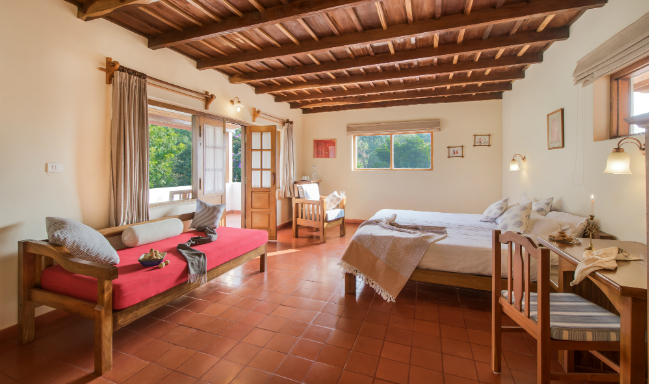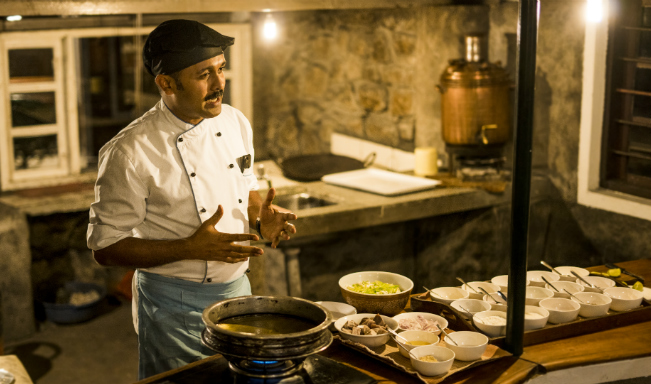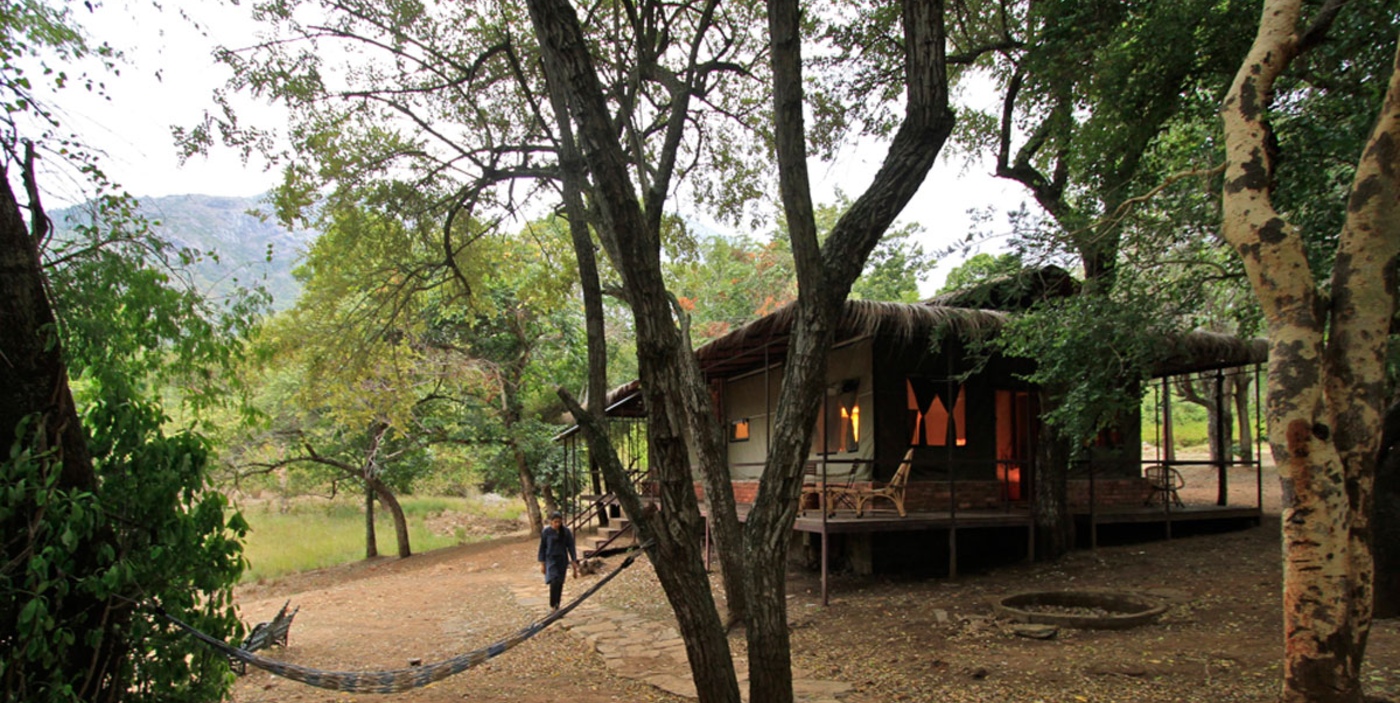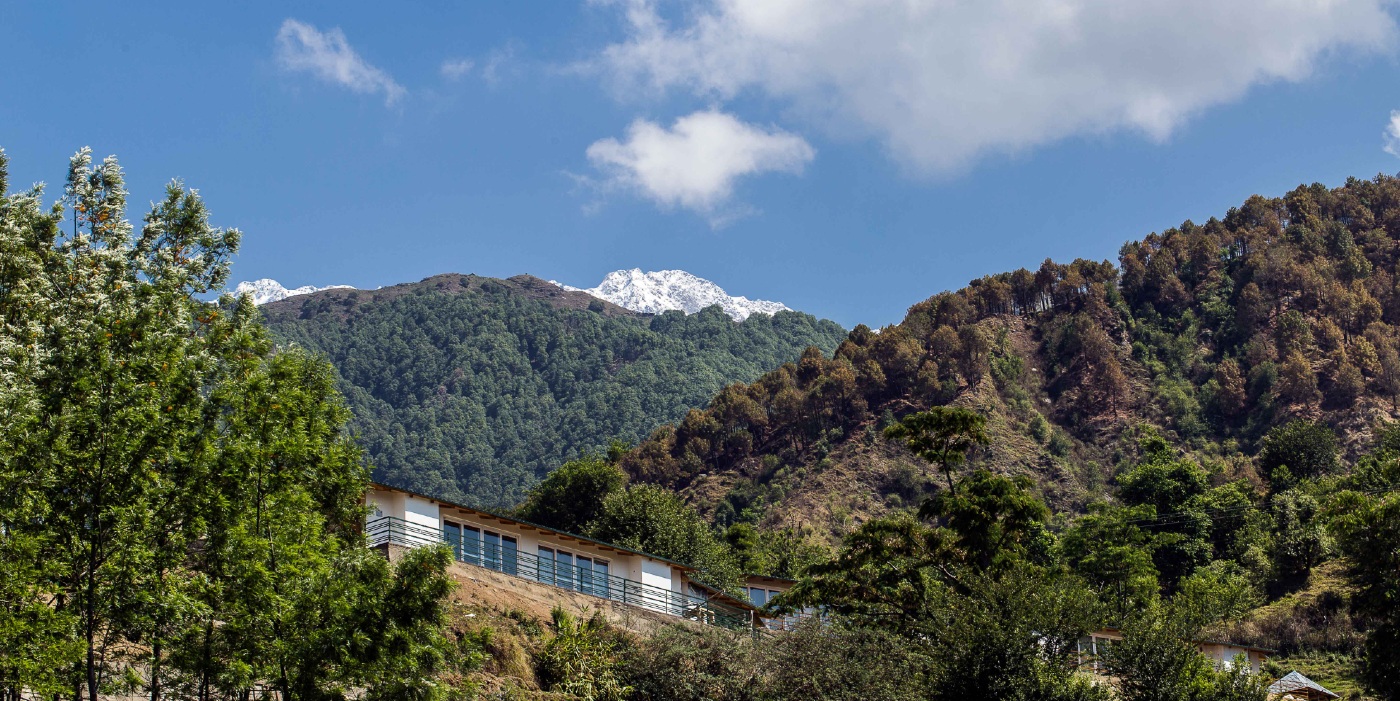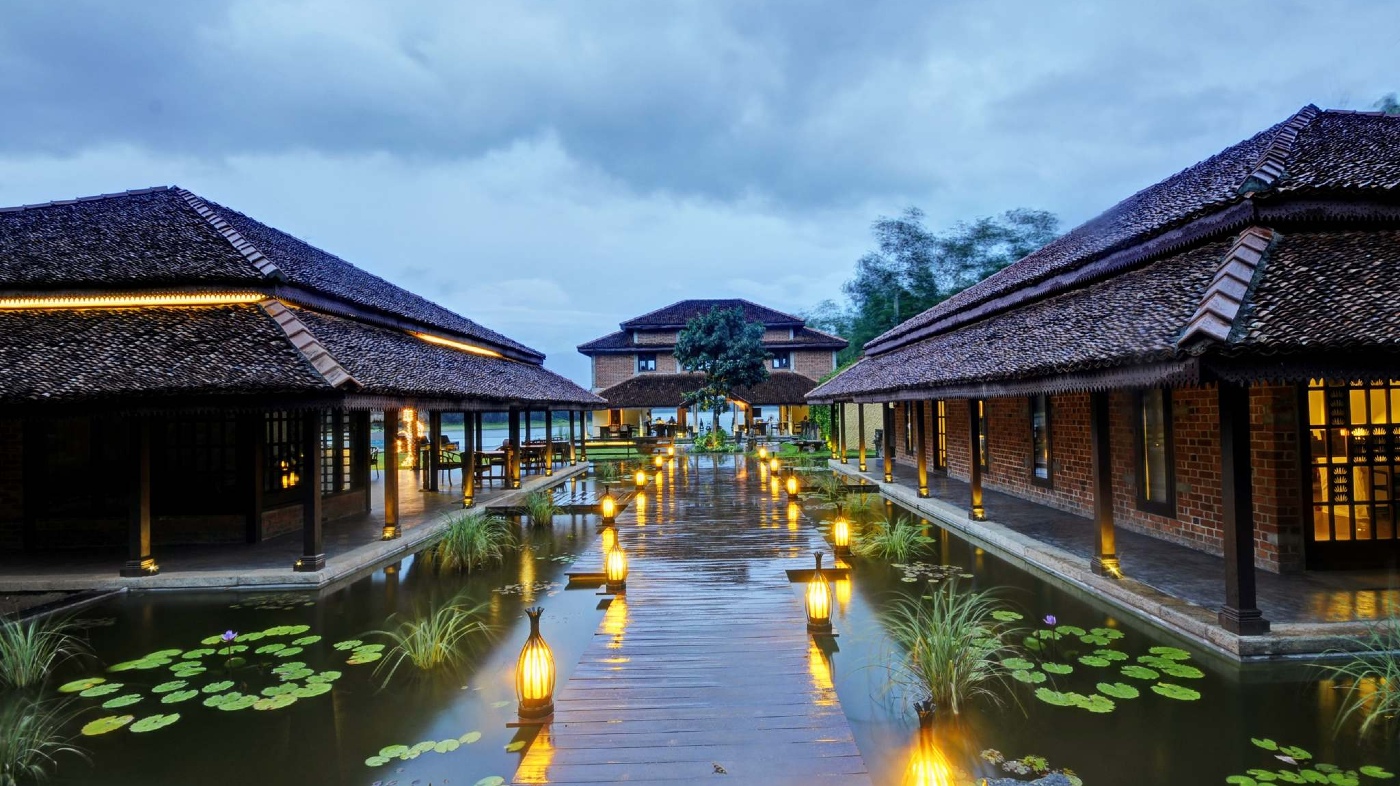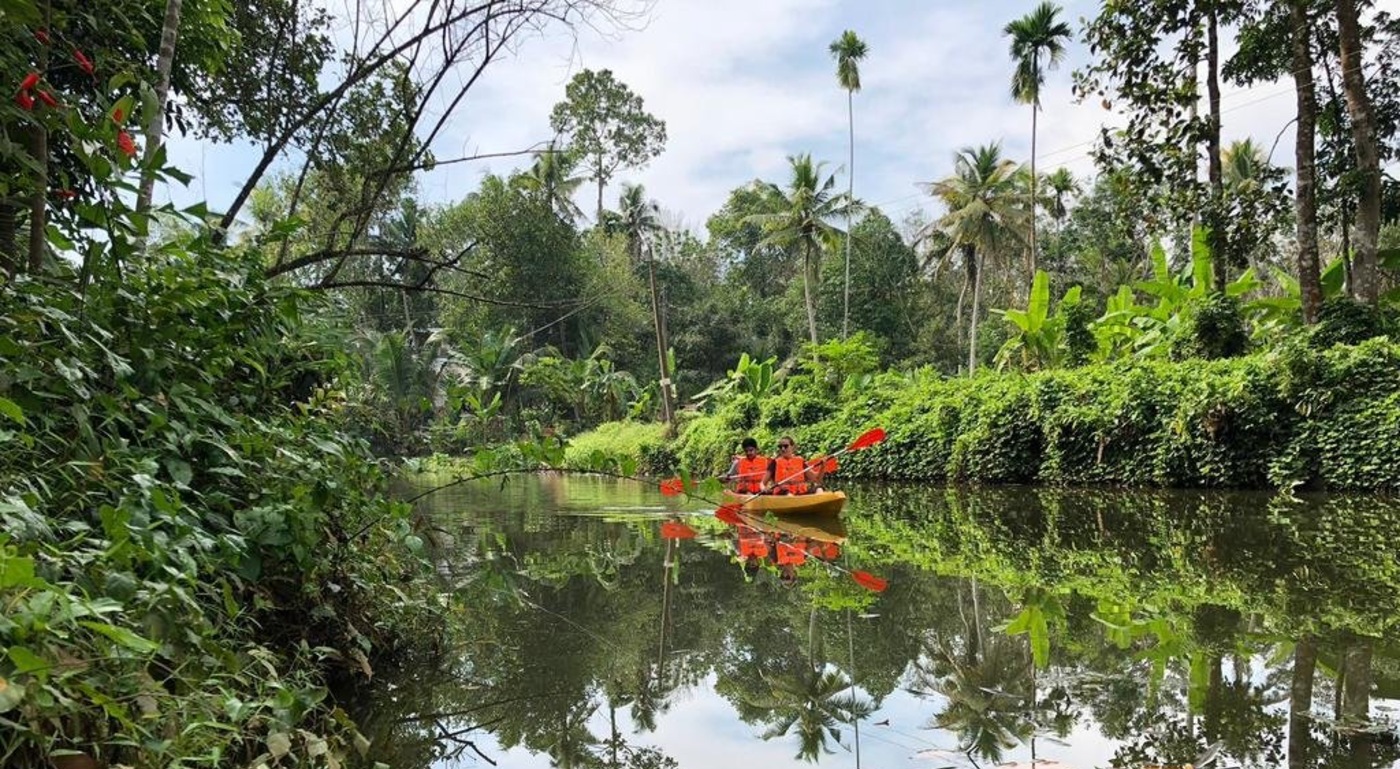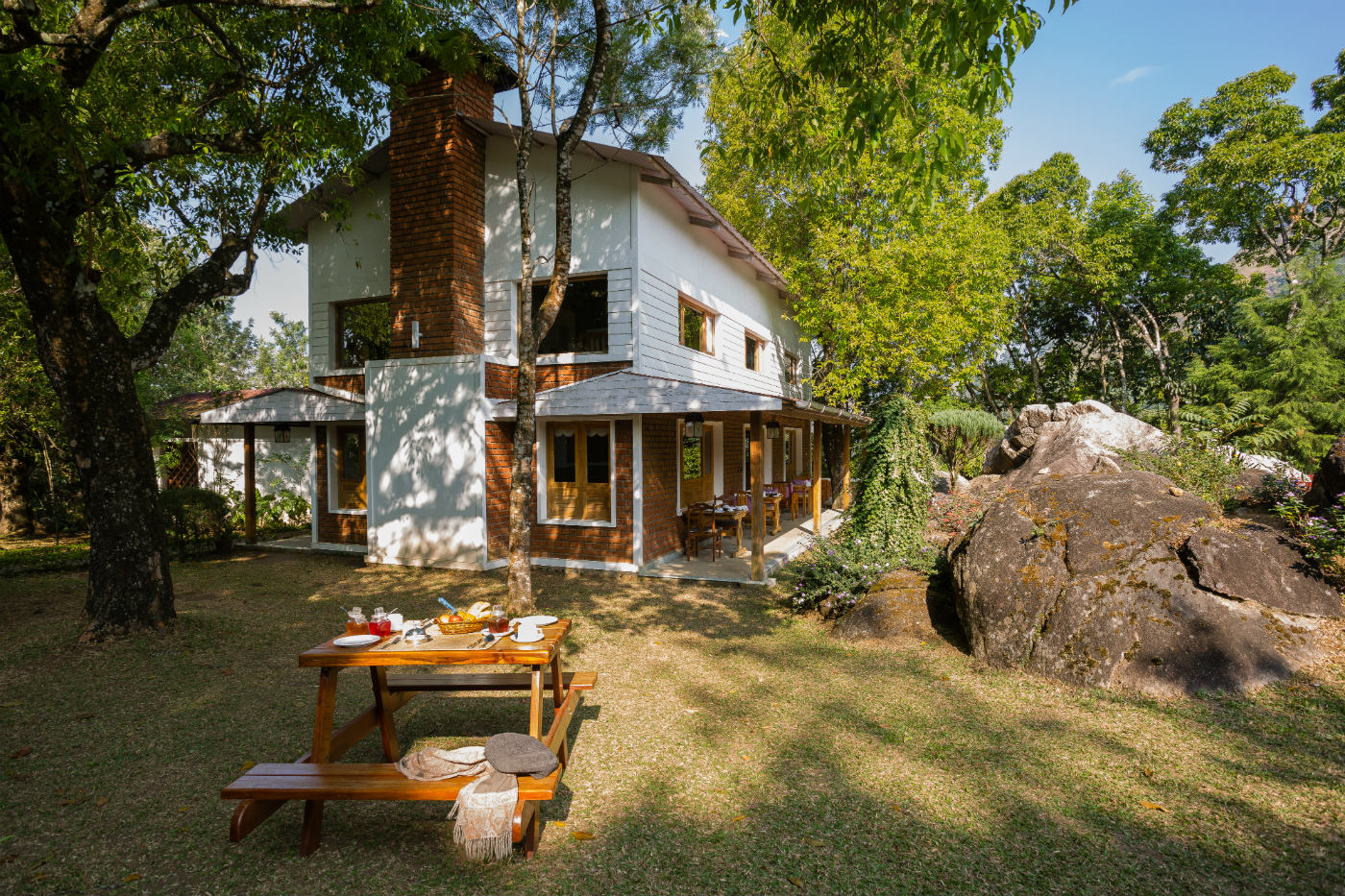
A luxury plantation retreat in Munnar, Kerala
Munnar with its almost unending carpet of tea bushes is solid tea country. But scratch the surface and you will find coffee and spice plantations too! A short drive from the town brings you to one such coffee and cardamom plantation that also houses a unique and small plantation resort that will give you the hill stay experience of your dreams.
Windermere Estate is surprisingly owned by an Ophthalmic Surgeon (now retired). Dr Simon John started the venture a little over 20 years ago, almost a decade after he purchased the Estate from a pioneering planter’s family in 1985. He built a few rooms for his family’s guests and that quickly snowballed into a tourism enterprise.
Set up in a 60-acre plantation, where coffee and cardamom plants take pride of place, Windermere Estate’s guest rooms are located on just 3 acres.
Guests can expect stunning views of the tea covered hill slopes that are bounded by cardamom fields—the original estate owners christened the estate thus, due to the natural beauty that reminded them of England’s Lake District of Windermere. The estate grounds is covered with old growth trees and numerous plants—there are about 200 trees on the estate that are around a century old. Not surprisingly, the grounds are home to many endemic birds, frogs and the malabar giant squirrel among other animals.
The retreat of the Windermere Estate, which is on a little hillock, comprises of 18 rooms that are in five chalets. The buildings are built in such a way that rock formations and trees have not been disturbed.
The rooms at the Estate are all spacious and charmingly rustic, with most opening onto the grounds and all offering great views. Guests can expect large windows, lots of natural light, generously-proportioned furniture hewn by local craftsmen, hand-embroidered sheets of soft linen and cotton, terracotta floors rubbed with linseed oil and hardwood floors polished with traditional wax.
The meals are an intrinsic part of the Windemere experience. There are no menus or the dreaded resort buffet here. The chefs here decide on the day’s meal based on the day’s produce from the Estate’s gardens and the local markets. Meals are served at the table course by course and mostly feature home-style local and Indian dishes. The meals are served at The Barn, a sun drenched space that is inspired by traditional cardamom curing houses. The balcony overlooking the tea gardens is a favourite breakfast and lunch spot for guests. The Resort has re-created the famous Kerala ‘chaya kada’ or tea shop—that communal centrepiece of any Kerala village. Just like in a village tea shop, The Tea Shack brews tea in large, charcoal fired samovars. A dining experience unlike any other is the sit down dinner, preceded by a bonfire and barbeque, that is organised twice a week at The Boulder, literally a giant boulder in the Estate grounds.
The Estate also organises a number of experiences within the plantation property, like plantation walks, birding hikes, herping walks, cooking sessions with the Estate’s chef and talks. It also organises treks, hikes, cycling trips and tea experiences in the surrounding region, along with such special experiences like a cooking session with a local.
Price: From Rs 11,000 to Rs 22,000 during season; includes breakfast.
Read more: http://www.windermeremunnar.com/
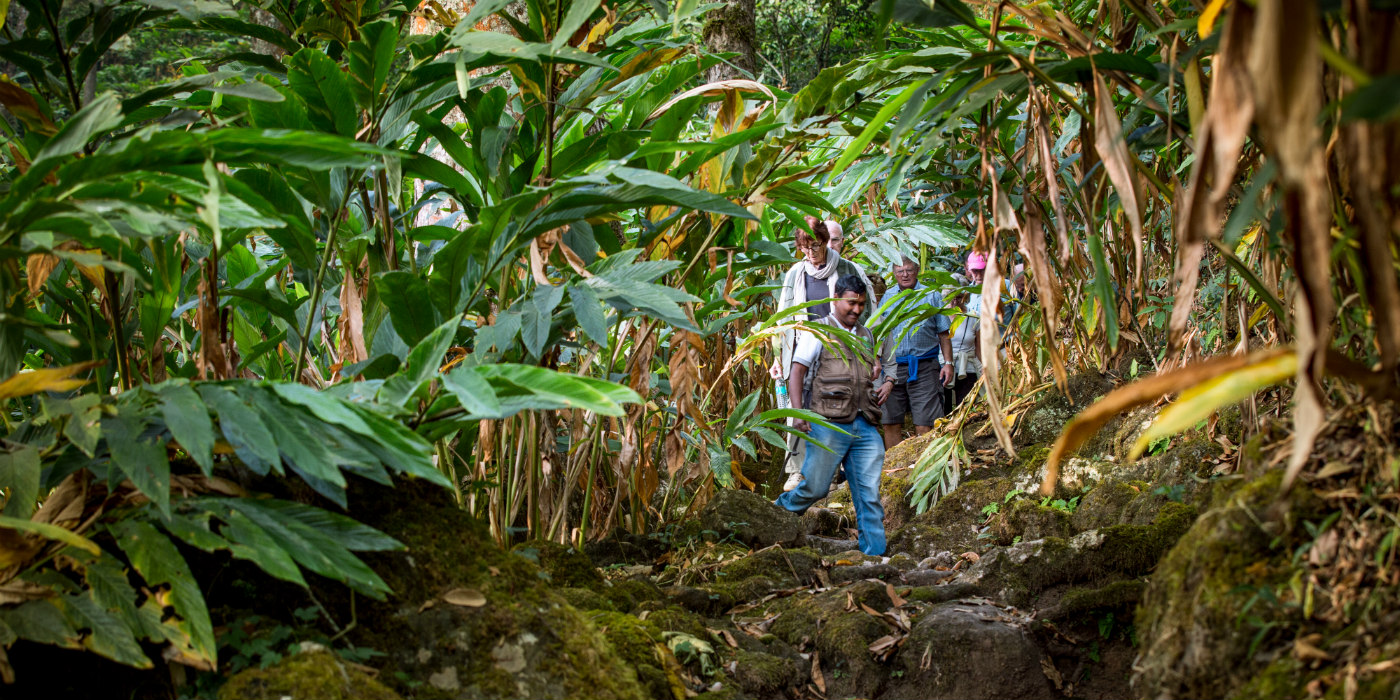
Slow Travel
The Windermere Estate plantation employs mostly women from the village. Many of the employees at the resort are also locals. The estate has partnered with conservation and habitation studies that is related to frogs in the region for about four years until 2018 and now the Estate is a venue for short term studies on the same. The resort areas are built on just 30% of the property and the buildings have been built around the trees and rock formations on the grounds. The natural spring in the property is used for all water requirements. Each day, the Kitchens here serve food based on the day’s produce from the Estate’s gardens or the local markets. This ensures there is less storage and wastage of food. The estate uses bio-digester for treating food waste, which is converted to biogas for cooking and also form manure. It also treats sewage that is then used for watering coffee plants. The estate is working on eliminating plastic water bottles and already offers RO water as an alternative.
